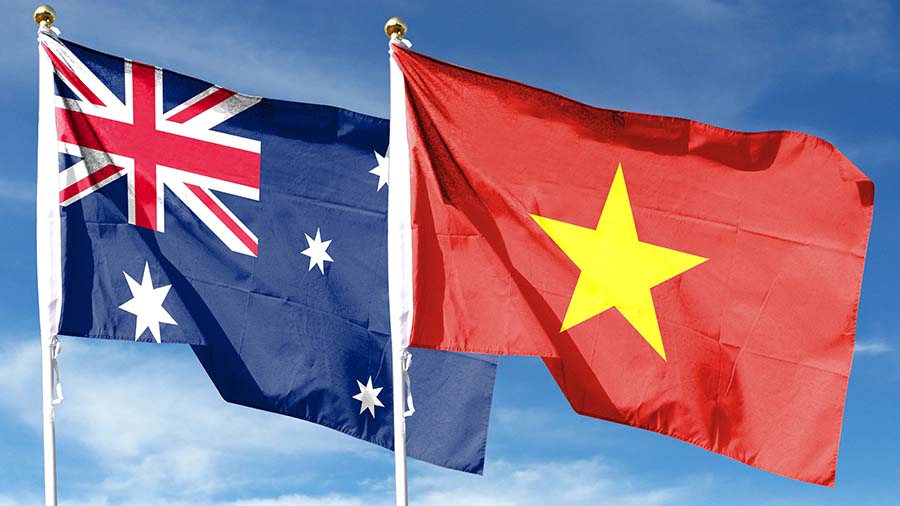Remittances to Vietnam on the Rise
By: Dezan Shira & Associates
Editor: Koushan Das
Vietnam received nearly US$13.8 billion in remittances in 2017, making it the eighth highest recipient of remittances in the world. After two years of decline, remittances in 2017 grew by 16 percent compared to 2016, accounting for 6.7 percent of the country’s GDP. Ho Chi Minh City continues to remain the highest recipient in the country, with total inflows at US$5.2 billion, an annual increase of 4.5 percent.
![]() RELATED: Pre-Investment Advisory Services from Dezan Shira & Associates
RELATED: Pre-Investment Advisory Services from Dezan Shira & Associates
Remittance source
The major sources of remittances to Vietnam are Vietnamese export workers and overseas Vietnamese living in other countries. The US accounts for 60 percent of all the remittances sent to Vietnam, while 20 percent are sent from Europe. Other major sources include China, South Korea, and Japan.
Four major channels that are used to send remittances to Vietnam are the commercial banks, economic institutions, customs, and post, with commercial banks alone accounting for 72 percent of all remittances.
![]() RELATED: An Overview of Transfer Pricing in Vietnam
RELATED: An Overview of Transfer Pricing in Vietnam
Importance of remittance
Remittances sent to Vietnam are not only a key source of capital for the economy but is also important as it is in foreign currency, which contributes to the foreign exchanges and helps in offsetting trade deficit. To stabilize the foreign exchange market in Vietnam, the central bank had implemented a zero deposit rate on foreign currencies in 2016, which led to a decrease in deposits.
Remittances sent to Vietnam were usually used for family support, but in the last few years, it has been redirected towards business investments, real estate, and savings. In recent years, around 70 percent of the remittances go to production and business projects, while 20 percent are directed towards real estate, and only six to seven percent is spent on healthcare, family support, and education.
![]() RELATED: Annual Tax Finalization and Remittance in Vietnam
RELATED: Annual Tax Finalization and Remittance in Vietnam
Effect of US Federal Reserve hikes
Since the last two years, Vietnam’s central bank has kept the deposit rates on US dollar savings at zero, to help stabilize the foreign exchange market. However, with the US Federal Reserve hiking interest rates in 2017 and more hikes expected in 2018, Vietnamese citizens with foreign currency would prefer moving their savings outside Vietnam, which can lead to a decrease in remittances.
Going forward, Vietnam’s central bank needs to offer at least 0.5 to 1 annual deposit rate to encourage foreign currency savings in banks, which are a major source of foreign exchange reserves.
|
Vietnam Briefing is published by Asia Briefing, a subsidiary of Dezan Shira & Associates. We produce material for foreign investors throughout Eurasia, including ASEAN, China, India, Indonesia, Russia & the Silk Road. For editorial matters please contact us here and for a complimentary subscription to our products, please click here. Dezan Shira & Associates provide business intelligence, due diligence, legal, tax and advisory services throughout the Vietnam and the Asian region. We maintain offices in Hanoi and Ho Chi Minh City, as well as throughout China, South-East Asia, India, and Russia. For assistance with investments into Vietnam please contact us at vietnam@dezshira.com or visit us at www.dezshira.com
|
![]()
 Dezan Shira & Associates Brochure
Dezan Shira & Associates Brochure
Dezan Shira & Associates is a pan-Asia, multi-disciplinary professional services firm, providing legal, tax and operational advisory to international corporate investors. Operational throughout China, ASEAN and India, our mission is to guide foreign companies through Asia’s complex regulatory environment and assist them with all aspects of establishing, maintaining and growing their business operations in the region. This brochure provides an overview of the services and expertise Dezan Shira & Associates can provide.
 An Introduction to Doing Business in Vietnam 2017
An Introduction to Doing Business in Vietnam 2017
An Introduction to Doing Business in Vietnam 2017 will provide readers with an overview of the fundamentals of investing and conducting business in Vietnam. Compiled by Dezan Shira & Associates, a specialist foreign direct investment practice, this guide explains the basics of company establishment, annual compliance, taxation, human resources, payroll, and social insurance in this dynamic country.
Managing Contracts and Severance in Vietnam
In this issue of Vietnam Briefing, we discuss the prevailing state of labor pools in Vietnam and outline key considerations for those seeking to staff and retain workers in the country. We highlight the increasing demand for skilled labor, provide in depth coverage of existing contract options, and showcase severance liabilities that may arise if workers or employers choose to terminate their contracts.
- Previous Article Inde-Vietnam : un partenariat stratégique global émerge
- Next Article Investment Environment in Mekong Delta

































